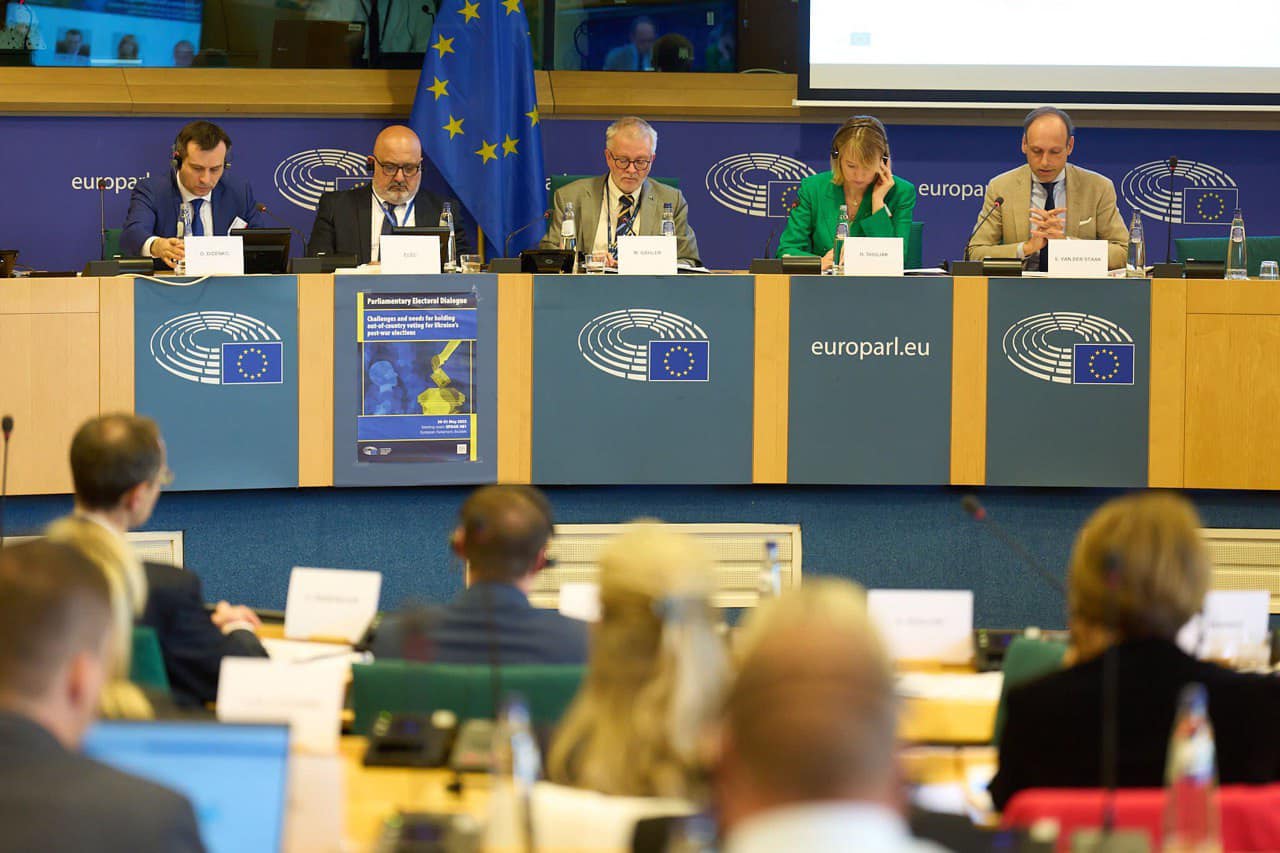The European Union, Member States and election bodies need to explore the possibilities to provide support for Ukraine to ensure millions of displaced voters from the Russian aggression can vote in postwar, according to a dialogue of European lawmakers, election management bodies and experts.
This was the major recommendation of a Parliamentary Electoral Dialogue hosted by the European Parliament and the International Institute for Democracy and Electoral Assistance (International IDEA) on the "Challenges and Needs for Holding Out-of-Country Voting for Ukraine's Post-War Elections" in Brussels on 30-31 May, 2023.
The Parliamentary Electoral Dialogue brought together representatives of the Central Electoral Commission of Ukraine, the Parliament and Ministry of Foreign Affairs of Ukraine, civil society, electoral management bodies from across the globe, European Union institutions, and international electoral assistance providers.
Regular parliamentary elections are due in autumn 2023, presidential elections in the spring of 2024, and local elections in autumn 2025, according to Ukraine's constitution, But elections cannot take place while martial law is effective. Despite the war, Ukrainian authorities have begun to seek a workable model for conducting out-of-country voting. As they will take place outside of Ukraine's jurisdiction and will serve a large number of Ukrainian citizens displaced by the war, they will need operational support from host country governments and international partners.
“Out of this Parliamentary Electoral Dialogue emerges our appeal to the international community to support Ukraine democratic institutions. It is imperative to provide and electoral instrument for outof-country elections to enable the millions of Ukrainian voters who became refugees abroad to exercise their right to vote” – noted Mr David McAllister, Chair, Commitee on Foreign Affairs of the European Parliament.
The participants of the Dialogue recognized the extraordinary challenges of arranging out-of-country voting for millions of Ukrainian refugees, including legal, organizational, and security aspects, and expressed their readiness to support Ukraine in identifying the most feasible model.
“Millions of votes of these individuals will be critical for ensuring that Ukraine's post-war elections reflect a truly popular result and that it provides a broadly-based mandate to the government to lead Ukraine to its successful reconstruction,” said Mr Sam van der Staak, Director for Europe at International IDEA. “This dialogue, gathering electoral and other state authorities from across Europe shows an unwavering commitment of the international community to help Ukraine overcome this challenge for its post-war elections”.
The Dialogue participants backed the following recommendations
To the European and other electoral bodies and state authorities:
• Continue supporting Ukraine in learning from internationally recognised standardsfor out-of country voting (OCV) practices and provide further assistance in organising OCV for Ukraine's post-war elections;
To the European Union institutions:
• Explore possibilities of supporting Ukraine's OCV within their competencies.
To the Ukrainian actors:
• Hold inclusive parliamentary committee hearings and adopt the necessary legal framework in time to allow for preparations and avoid hasty decisions that may undermine the security or trust in the results;
• Ensure that candidates and voters are well-aware of all changes to the existing rules and procedures.
The dialogue was attended by electoral management bodies from Albania, Austria, Belgium, Bosnia and Herzegovina, Croatia, Czech Republic, Denmark, Estonia, Finland, Germany, Hungary, Latvia, Lithuania, Moldova, Poland, Romania, Spain, Sweden, Switzerland, United Kingdom, and the United States.
READ ALSO: Elections Is Not About Administration Bodies. So, It's About Citizens — Aivazovska
